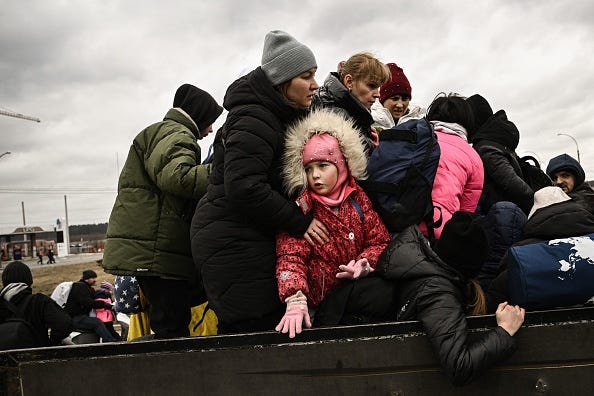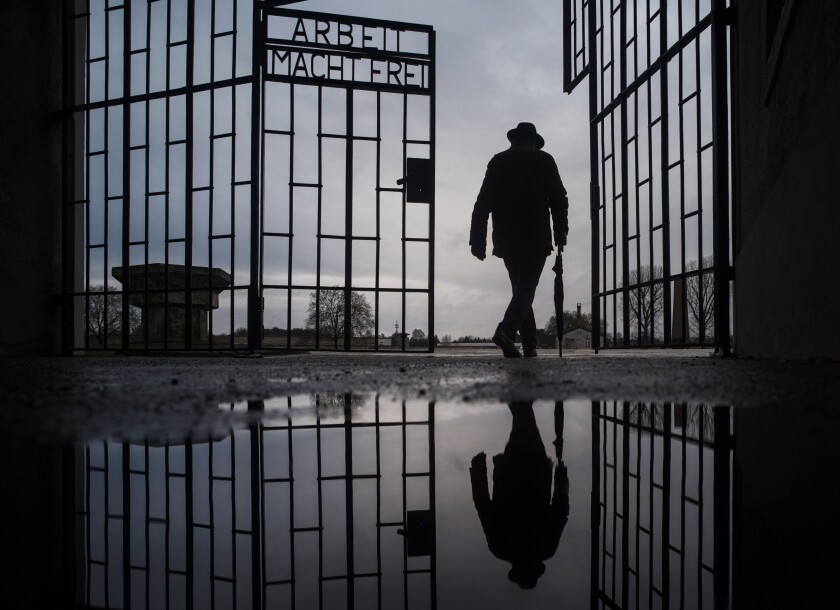“The American people honor all those Armenians who perished in the genocide,” the president said in a statement.
By BENJAMIN DIN, as posted on POLITICO on April 24, 2021
President Joe Biden on Saturday recognized the Armenian genocide, fulfilling a campaign promise and taking a step that his recent predecessors have avoided while in office.
Biden’s designation, which coincided with Armenian Genocide Remembrance Day, signals the president’s desire to prioritize human rights despite potential fallout in the U.S. relationship with Turkey. It comes 106 years after the beginning of the mass deportation of Armenians by the Ottoman Empire, which led to the deaths of up to 1.5 million people.
“The American people honor all those Armenians who perished in the genocide,” Biden said in a statement Saturday.
“Over the decades Armenian immigrants have enriched the United States in countless ways, but they have never forgotten the tragic history that brought so many of their ancestors to our shores. We honor their story. We see that pain. We affirm the history. We do this not to cast blame but to ensure that what happened is never repeated,” he added.
The United States is now part of a group of 30 countries that have recognized the Armenian genocide, according to the Armenian National Institute. Although Turkey acknowledges the “tragic experience” of Armenians, it maintains the number of those who died between 1915 and 1923 is inflated and denies the characterization of the events as genocide.
The largely symbolic declaration followed a Friday phone call between Biden and Turkish President Recep Tayyip Erdogan. In readouts of their first call, neither the White House nor Ankara said if Biden directly addressed his plan to recognize the Armenian genocide. Biden however did tell Erdogan that he intended to recognize the genocide, the Associated Press reported, citing a person familiar with the conversation.
For more than a century the U.S. has not formally recognized the killing of more than a million Armenians by the Ottoman Empire during WWI as genocide. Over the weekend, that changed.
Erdogan has been adamant in not referring to the World War I-era events as genocide, and in 2019, Erdogan spokesperson Fahrettin Altun said any such recognition would “endanger the future of [U.S.-Turkish] bilateral relations.” In 2014, the Turkish president called the events “inhumane.”
Turkey’s foreign ministry quickly denounced Biden’s statement Saturday, saying it doesn’t have “a scholarly or legal basis.”
“The US President’s statement will not yield any results other than polarizing the nations and hindering peace and stability in our region,” the country’s foreign ministry said in a statement.
Armenian Prime Minister Nikol Pashinyan hailed the move, writing in a letter to Biden that his “principled position … is a powerful step towards the restoration of truth and historical justice, invaluable support to the descendants of the victims of the Armenian genocide.”
Over decades, lawmakers in Congress have been willing to recognize the genocide but sitting presidents historically have not. In a statement to mark the day of remembrance last year, Biden said he was “proud” of his role in the Senate to recognize the Armenian genocide and his endorsement of 2019 resolutions in both chambers of Congress that did the same.
In recent weeks, lawmakers have been increasingly vocal about their desire for Biden to take this step. On Wednesday, more than 100 representatives called on Biden to “clearly and directly recognize the Armenian Genocide.” Last month, 38 senators signed on to a letter that also urged Biden to classify the events as genocide.
Prominent Democrats backed Biden’s decision Saturday, including House Speaker Nancy Pelosi and Rep. Alexandria Ocasio-Cortez (D-N.Y.).
“Our hearts are full of joy that President Biden has taken the historic step of joining Congress with formal recognition on Armenian Genocide Day,” Pelosi said in a statement Saturday. “History teaches us that if we ignore its darkest chapters, we are destined to witness the horrors of the past be repeated.”
Ocasio-Cortez called the move “long overdue” in a tweet Saturday and said that she hopes it will bring peace to people affected by it.
Rep. Adam Schiff (D-Calif.) thanked Biden on Twitter for “speaking truth to power.”
“He has cast aside decades of shameful silence and half-truths, and the broken promises of so many of his predecessors, and spoken truth to power,” Schiff said in a statement.
Past sitting U.S. presidents have danced around the issue, not wanting to disturb relations between the NATO allies.
As a presidential candidate, Barack Obama pledged to recognize the Armenian genocide if elected, although his administration ultimately did not do so — a decision his ambassador to the U.N. ultimately expressed remorse for in 2018.
President Donald Trump declined to classify the Armenian genocide as such, despite both chambers of Congress overwhelmingly passing resolutions to do so in 2019. Instead, Trump called it “one of the worst mass atrocities of the 20th century.”
In 1981, President Ronald Reagan referenced “the genocide of the Armenians” in a statement that remembered victims of the Holocaust.
Ben Leonard contributed to this report.





